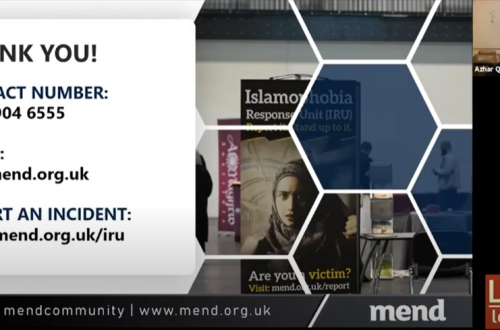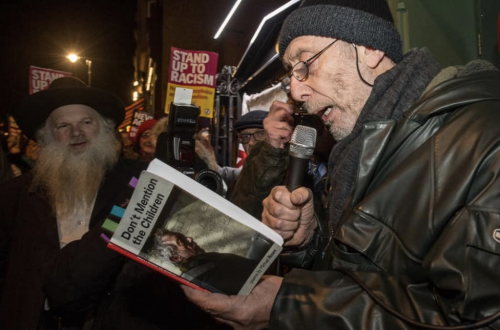Owen Jones, predictably, didn’t like David Cameron’s Slovakia speech. In his recent Guardian article he particularly takes issue with Cameron’s focus on ideology rather than, say foreign policy, as a key driver behind radicalisation. Jones rightly points out that, when examining the rise of Nazism, it is important to take account of the role played by the ‘punitive treaty of Versailles peace terms ‘. However this is a poor analogy. If a British national had absconded to Germany in WWII to help implement the Holocaust, it would seem odd to speculate that the Treaty of Versailles might have ‘radicalised’ him. Jones does concede that ‘we need to challenge and confront perverse ideologies’ – but I suspect he sets his bar rather high.
Myriam Francois Cerrah also objects to Cameron’s suggestion that even some Muslims who oppose ISIS might help foster a climate in which radicalisation takes place. Many share her concerns that ‘challenging’ ideas, as opposed to direct (incitement to) violence, should not be proscribed; however when these ‘ideas’ include the belief apostates should die and the desirability of establishing a Caliphate, it’s not hard to see why they might help pave the way to ISIS support. Although both Jones and Cerrah are perhaps on more solid ground when they attack tabloid coverage of Muslims or relationships with despotic regimes, neither engages head on with what Cameron actually said.
As so often, the whole issue hinges on how far we want to distinguish between violent and non-violent extremism.
Mr Cameron said: “The cause is ideological. It is an Islamist extremist ideology, one that says the West is bad, that democracy is wrong, that women are inferior, that homosexuality is evil. “It says religious doctrine trumps the rule of law and Caliphate trumps nation state and it justifies violence in asserting itself and achieving its aims. The question is: How do people arrive at this worldview?”
Cameron should perhaps have said ‘that homosexual acts merit the death penalty’ rather than ‘that homosexuality is evil’, as believing homosexuality to be a sin (whatever your religion) is compatible with support for secular democracy.
There are British Muslims who subscribe to all or most of these views and insist they are inseparable from Islam. (Of course there are other Muslims who support nothing of the kind, indeed assert the opposite.) Is there a difference between Muslims who support these views and the followers of ISIS? Yes – but not such a difference as one might think from reading Jones and Cerrah.
I wonder if they would be so quick to point out the difference between those counter-jihadists admired by Anders Breivik and Breivik himself. Yet the gap between Breivik and many of his alleged influences (Robert Spencer or Daniel Pipes for example) is, it could be argued, a good deal wider. Whatever one thinks of their views, they don’t call for Muslims (or leftists) to be killed in an ideal state. By contrast, within the large and disparate group of Muslims whom MFC describes as ‘not just the violence-preaching minority’ there are a number who do support (at least in theory) hudud punishments and other extreme positions.


